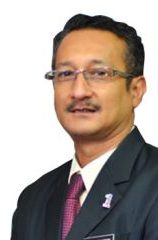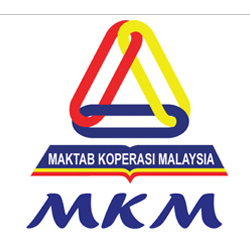In conversation with
Assoc. Prof. Dr. Abdul Rahman Shaik
Director General | Co-Operative College of Malaysia (CCM) – Maktab Koperasi Malaysia (MKM)

ASEAN Education Spotlight: What would you say is the meaning of education?
Dr. Abdul Rahman Shaik: Education is important in shaping your way of life and becoming a moral person. We are very focused on lifelong learning and the cycle of education at our institution.
What have been the major goals you have set out to complete in order to develop CCM?
Dr. Abdul Rahman Shaik: We have identified which sectors contribute most to the national GDP: retailing and merchandise, credit and banking, plantation and agriculture, properties and hardware and tourism and healthcare. With that said, our main focus falls on these areas among others and we make sure to encourage our students to explore them as well as develop their online business ideas.
In what regard would you partner with higher education institutions around Malaysia in order to help your students transition from the diplomas you’re providing into continuing their education?
Dr. Abdul Rahman Shaik: Last year we acquired an academic centre which is our subsidiary. It is fully owned by CCM and our future plans are to upgrade it to a college and then hopefully to a university. Our Ministry of Domestic Trade, Co-operative and Consumerism provide support in the form of industry experts and capital for a private university in the future. We work with Universiti Putra Malaysia for our diplomas and for our degree, we work with Universiti Utara Malaysia. We also work with Open University Malaysia for the online courses.
When it comes to the demographics of your students, do you notice whether your students are already working and looking to enhance their abilities or is it mostly students from non tertiary institutions moving up to your diplomas?
Dr. Abdul Rahman Shaik: Our students are generally school leavers. We include entrepreneurial skills in our courses and after they graduate they join the Co-operative movement under Co-operative Career Training Scheme for six months and we provide them some allowance to gain some working experience. We provide two types of training programs, long and short term. Long term is for school leavers and short term courses are directed at people already working and looking to enhance their skills set. Our online degree students are using the Learning Management System to communicate with their lecturers, which is a system we share with Open University Malaysia.
In regards to placement for the Co-operative movement, who are some of the companies and institutions which you work with closely in order to employ your students upon receiving their diplomas?
Dr. Abdul Rahman Shaik: We believe working in a Co-operative business is a niche area that provides long term opportunity. We provide graduate schemes and work with various types of companies. Some of our good and well known partners are Bank Rakyat and Felda Group. When our students finish their studies we encourage them to work with the Co-operative. The students also have a five months internship before they graduate.Last year we had 81% employability for our students within three months of graduation.
Last year when we were here we focused on looking outward to the West, but we see you have started looking towards ASEAN. We believe that Malaysia as the chairman of the ASEAN union has a responsibility in uniting the ten member states through education, can you elaborate on the programs you have established and what are your plans now ASEAN has taken its course to expand more?
Dr. Abdul Rahman Shaik: Since last year we have an annual international conference in which we invited all ASEAN countries to join us because we believe in the value of networking within ASEAN. On top of this, we provide our Malaysian Co-operative Technical Corporation Program (MTCP) in ASEAN countries, as well as to 140 recipient countries from all over the world, which is a two weeks program sponsored fully by our government in which we provide lectures and insight into our Co-operative foundation.
Being a public body, what is your strategy for generating sustainable funds given that there has been a decrease from the government when it comes to funding public institutions?
Dr. Abdul Rahman Shaik: Until now we have not relied too heavily on the government. Our salaries are paid by the government, which is a disadvantage because we can’t increase our staff. One of our sources of funds are contributions from the Co-operative Movement. This means that when we organize professional courses and workshops we charge fees, we obtain funds from the Co-operative movement based on their success. Since the government asked us to create our own income, we started charging for our self publications and consultations. Now we are introducing the online Co-operative program for which there will also be fees that apply. We also rent all of our facilities and in the future we hope to own these facilities so they become our assets.
What do you believe ASEAN will mean for higher education within the region?
Dr. Abdul Rahman Shaik: I believe ASEAN will benefit higher education. It provides us the opportunity to educate others about the Co-operative Movement and how it can enhance their economy.
Your ambition about the Co-operative started at a young age. Now as the leader of this institution, what are the achievements that have made you most proud throughout your time here?
Dr. Abdul Rahman Shaik: We call it our transformation program; last year we made a plan for transformation, this year we have benefited from our transformation. We came up with a community based centre where we have our own private college and we believe we can become a university in the near future. We have established international links with the Co-operative in Japan, India and the UK and last year we signed an MOU to collaborate with the Co-operative college of the UK as well as connections within ASEAN.
